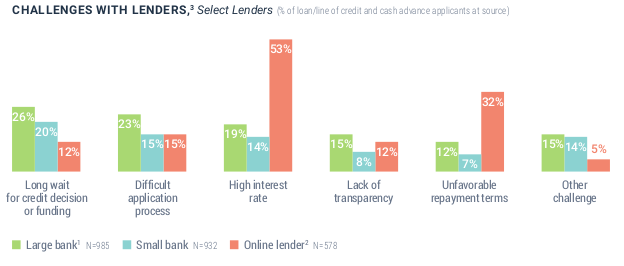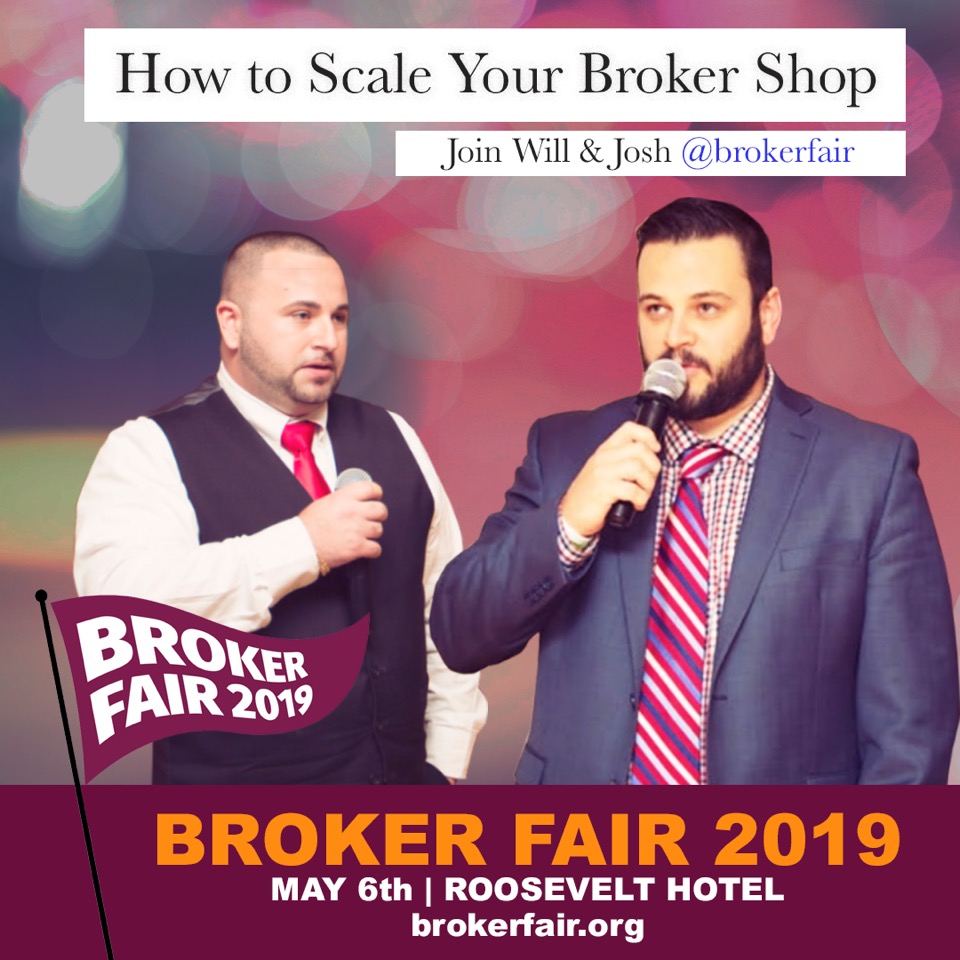Archive for 2019
When Merchants Defraud Lenders
April 17, 2019 Back when lenders used to visit the site of a merchant’s business, a “doctor” once hired actors to play nurses and patients to give the illusion of a thriving medical practice when the lender came to check in on the business before financing it. The doctor’s office looked legitimate, it got funded and the fraudster ran off with the money.
Back when lenders used to visit the site of a merchant’s business, a “doctor” once hired actors to play nurses and patients to give the illusion of a thriving medical practice when the lender came to check in on the business before financing it. The doctor’s office looked legitimate, it got funded and the fraudster ran off with the money.
This story was shared last night by Lowell Isaacs, Chief Credit Officer at Fora Financial, as part of an anti-fraud panel discussion organized by Ocrolus. Meanwhile, another panelist relayed a story about a nine-year old who was cheating the system at a chess club he brings his son to.
“If kids can do it, customers can do it too,” said Vivek Nasta, VP of Product at Ocrolus, which designs and implements technology to verify the authenticity of financial data, primarily bank statements.
Another panelist, CEO of PeerIQ Ram Ahluwalia, spoke about synthetic fraud, or people using manufactured identities.
“They”ll be a very good payer and then three years later, they’ll draw out all the money and disappear,” Ahluwalia said.
Nasta spoke of how, after the financial crisis, it became impossible to get a loan from banks. And what developed, Nasta said, was “a race for customers” to fill the void that banks left. Since the online lenders were competing – and still do – around speed, he said that customers started assuming that they could get money very quickly.
Isaacs acknowledged the role that funders played in rushing money to merchants.
“In some ways, this is something we’ve brought on ourselves,” Isaacs said. “I’m not sure it was a demand issue. I think a lot of it came from the supply side.”
Ahluwalia, however, acknowledged that many legitimate borrowers, particularly consumer borrowers, do prioritize speed over rate, often because they have no savings for emergencies.
“I hope you’ll never see a lender fund a merchant instantly,” said Yaakov Erlichman, VP of Fraud at Kabbage, “unless they have all the data on that merchant.” Granted, Kabbage can already approve a merchant in less than 10 minutes, so Kabbage is definitely focused on speed.
Everyone on the panel seemed to agree that it’s impossible to eliminate fraud altogether.
Nasta said that Ocrolus can protect against counterfeiting by recognizing, say, that the font of one character in a Bank of America bank statement is a font that hasn’t been used by Bank of America in 10 years. Kabbage’s Erlichman told deBanked he believes that fraudsters are not just random guys in their basement, but rather highly organized teams of people who spend their days creating fake identities and applying for loans. Still, he said that the number of people trying to defraud Kabbage is very small.
“99.9% of our customers are good actors,” Erlichman said, “so you want to make their experience awesome.”
Small Businesses Rank Online Lenders More Transparent Than Big Banks
April 16, 2019When it comes to business loans, small businesses say online lenders are more transparent than big banks.
Specifically, 15% of respondents to a Federal Reserve survey reported challenges with transparency experienced at big banks versus only 12% with online lenders. Small businesses also ranked big banks worse on credit decision wait times, application process difficulty, and other unspecified challenges.
The Federal Reserve survey examined small businesses with less than 500 employees.
Small banks fared the best on transparency, payment terms, and interest rates.
Merchant Cash Advances Surpass Leasing As Goto Financing Option for Small Businesses
April 16, 2019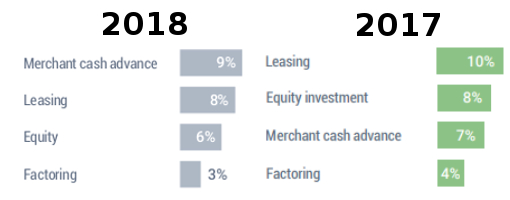
More small business applied for merchant cash advances in 2018 than they did leasing, factoring, or equity investments. That’s according to a recent Federal Reserve study of small businesses with less than 500 employees.
Nine percent of applicants applied for merchant cash advances in 2018 while only 3% applied for factoring. Leasing dropped year-over-year from 10% in 2017 to 8% in 2018.
On average, merchant cash advances were approved 85% of the time compared to business lines of credit (73%), business loans (67%), and SBA loans (52%). Six percent of all small businesses surveyed said they used merchant cash advances on a regular basis, versus 9% for leasing and 3% for factoring.
Unsurprisingly, small businesses overwhelmingly still sought loans or lines of credit. Of those surveyed that applied for any type of financing in 2018, 85% applied for a loan or line of credit and 28% applied for a credit card.
You can download the Federal Reserve’s complete report here.
Direct Lending Investments Had Over 950 Investors
April 16, 2019 Documents filed in a New York Supreme Court case by the receiver managing Direct Lending Investments (DLI), revealed that DLI had more than 950 investors worldwide with collective investments on the books totaling over $780 million.
Documents filed in a New York Supreme Court case by the receiver managing Direct Lending Investments (DLI), revealed that DLI had more than 950 investors worldwide with collective investments on the books totaling over $780 million.
For those wondering what’s happened since word of the hedge fund’s shocking demise, Bradley D. Sharp of Development Specialists, Inc. has been appointed to serve as permanent receiver for the fund’s estate. In the New York Supreme Court case, which coincidentally involves VOIP Guardian Partners, Sharp explained that they are currently dealing with a number of “urgent matters arising during the first two weeks of the SEC Action, including but not limited to: securing the business assets and cash of the receivership estate; taking custody of records of the Receivership Entity, including records held by third parties; filing notices of the receivership in approximately 50 district courts across the country; addressing insurance and loan portfolio matters; providing notice to and responding to inquiries from investors; and other similar pressing matters.”
Regarding the $192 million owed to DLI by VOIP, “the Receiver is evaluating enforcement and collection of the VOIP Guardian Loans as against VOIP Guardian Partners I LLC in light of its pending bankruptcy proceeding, and the underlying loans comprising the collateral for the VOIP Guardian Loans.”
Recovering the $192 million in bankruptcy from VOIP may prove difficult. deBanked determined that $159 million of it was actually loaned by VOIP to other companies internationally, including Telacme Ltd in Hong Kong and Najd Technologies Ltd in United Arab Emirates. At the time of its reporting, the websites for both companies had been taken down from the web. The website for Telacme has since been restored.
A class action lawsuit was filed against DLI, its former chief executive Brendan Ross, and others on April 1st.
Additional documents filed in the case on 4/12/19 can be viewed here:
DLI-41219-15.pdf
DLI-41219-16.pdf
Online Loans You Can Take To The Bank
April 16, 2019
OnDeck, the reigning king of small business lending among U.S. financial technology companies, is sharpening its business strategies. Among its new initiatives: the company is launching an equipment-finance product this year, targeting loans of $5,000 to $100,000 with two-to-five year maturities secured by “essential-use equipment.”
In touting the program to Wall Street analysts in February, OnDeck’s chief executive, Noah Breslow, declared that the $35 billion, equipment-finance market is “cumbersome” and he pronounced the sector “ripe for disruption.”
While those performance expectations may prove true – the first results of OnDeck’s product launch won’t be seen until 2020 – Breslow’s message seemed to conflict with OnDeck’s image as a public company. Rather than casting itself as a disruptor these days, OnDeck emphasizes the ways that its business is melding with mainstream commerce and finance.
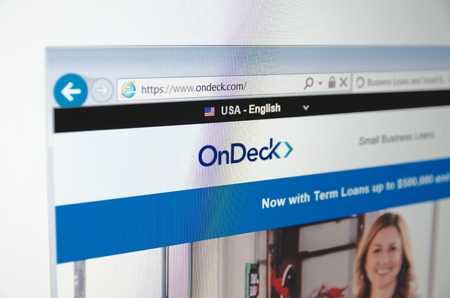 Consider that the New York-based company, which saw its year-over-year revenues rise 14% to $398.4 million in 2018, is collaborating with Visa and Ingo Money to launch an “Instant Funding” line-of-credit that funnels cash “in seconds” to business customers via their debit cards. With the acquisition of Evolocity Financial Group, it is also expanding its commercial lending business in Canada, a move that follows its foray into Australia where, the company reports, loan-origination grew by 80% in 2018.
Consider that the New York-based company, which saw its year-over-year revenues rise 14% to $398.4 million in 2018, is collaborating with Visa and Ingo Money to launch an “Instant Funding” line-of-credit that funnels cash “in seconds” to business customers via their debit cards. With the acquisition of Evolocity Financial Group, it is also expanding its commercial lending business in Canada, a move that follows its foray into Australia where, the company reports, loan-origination grew by 80% in 2018.
Perhaps most significant was the 2018 deal that OnDeck inked with PNC Bank, the sixth-largest financial institution in the U.S. with $370.5 billion in assets. Under the agreement, the Pittsburgh-based bank will utilize OnDeck’s digital platform for its small business lending programs. Coming on top of a similar arrangement with megabank J.P. Morgan Chase, the country’s largest with $2.2 trillion in assets, the PNC deal “suggests a further validation of OnDeck’s underlying technology and innovation,” asserts Wall Street analyst Eric Wasserstrom, who follows specialty finance for investment bank UBS.
“It also reflects the fact that doing a partnership is a better business model for the big banks than building out their own platforms,” he says. “Both banks (PNC and J.P. Morgan) have chosen the middle ground: instead of building out their own technology or buying a fintech company, they’ll rent.
 “J.P. Morgan has a loan portfolio of $1 trillion,” Wasserstrom explains. “It can’t earn any money making loans of $15,000 or $20,000. Even if it charged 1,000 percent interest for those loans,” he went on, “do you know how much that will influence their balance sheet? How many dollars do think they are going to earn? A giant zero!”
“J.P. Morgan has a loan portfolio of $1 trillion,” Wasserstrom explains. “It can’t earn any money making loans of $15,000 or $20,000. Even if it charged 1,000 percent interest for those loans,” he went on, “do you know how much that will influence their balance sheet? How many dollars do think they are going to earn? A giant zero!”
Similarly, Wasserstrom says, spending the tens of millions of dollars required to develop the state-of-the art technology and expertise that would enable a behemoth like J.P. Morgan or a super-regional like PNC to match a fintech’s capability “would still not be a big needle-mover. You’d never earn that money back. But by partnering with a fintech like OnDeck,” he adds, “banks like J.P Morgan and PNC get incremental dollars they wouldn’t otherwise have.”
The alliance between OnDeck and old-line financial institutions is one more sign, if one more sign were needed, that commercial fintech lenders are increasingly blending into the established financial ecosystem.
Not so long ago companies like OnDeck, Kabbage, PayPal, Square, Fundation, Lending Club, and Credibly were viewed by traditional commercial banks and Wall Street as upstart arrivistes. Some may still bear the reputation as disruptors as they continue using their technological prowess to carve out niche funding areas that banks often neglect or disdain.
Yet many fintechs are forming alliances with the same financial institutions they once challenged, helping revitalize them with new product offerings. Other financial technology companies have bulked up in size and are becoming indistinguishable from any major corporation.
Big Fintechs are securitizing their loans with global investment banks, accessing capital from mainline financial institutions like J.P. Morgan, Goldman Sachs and Wells Fargo, and finding additional ways — including becoming publicly listed on the stock exchanges – to tap into the equity and debt markets.
 One example of the maturation process: through mid-2018, Atlanta-based Kabbage has securitized $1.5 billion in two bond issuances, 30% of its $5 billion in small business loan originations since 2008.
One example of the maturation process: through mid-2018, Atlanta-based Kabbage has securitized $1.5 billion in two bond issuances, 30% of its $5 billion in small business loan originations since 2008.
In addition, fintechs have been raising their industry’s profile with legislators and regulators in both state and federal government, as well as with customers and the public through such trade associations as the Internet Lending Platform Association and the U.S. Chamber of Commerce. Both individually and through the trade groups, these companies are building goodwill by supporting truth-in-lending laws in California and elsewhere, promoting best practices and codes of conduct, and engaging in corporate philanthropy.
Rather than challenging the established order, S&P Global Market Intelligence recently noted in a 2018 report, this cohort of Big Fintech is increasingly burrowing into it. This can especially be seen in the alliances between fintech commercial lenders and banks.
“Bank channel lenders arguably have the best of both worlds,” Nimayi Dixit, a research analyst at S&P Global Market Intelligence wrote approvingly in a 2018 report. “They can export credit risk to bank partners while avoiding the liquidity risks of most marketplace lending platforms. Instead of disrupting banks, bank channel lenders help (existing banks) compete with other digital lenders by providing a similar customer experience.”
It’s a trend that will only accelerate. “We expect more digital lenders to incorporate this funding model into their businesses via white-label or branded services to banking institutions,” the S&P report adds.
Forming partnerships with banks and diversifying into new product areas is not a luxury but a necessity for Fundation, says Sam Graziano, chief executive at the Reston (Va.)-based platform. “You can’t be a one-trick pony,” he says, promising more product launches this year.
Fundation has been steadily making a name for itself by collaborating with independent and regional banks that utilize its platform to make small business loans under $150,000. In January, the company announced formation of a partnership with Bank of California in which the West Coast bank will use Fundation’s platform to offer a digital line of credit for small businesses on its website.
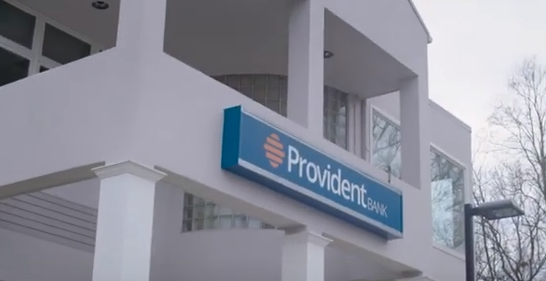 Fundation lists as many as 20 banks as partners, including most prominently a pair of tech-savvy financial institutions — Citizens Bank in Providence, R.I. and Provident Bank in Iselin, N.J. — which have been featured in the trade press for their enthusiastic embrace of Fundation.
Fundation lists as many as 20 banks as partners, including most prominently a pair of tech-savvy financial institutions — Citizens Bank in Providence, R.I. and Provident Bank in Iselin, N.J. — which have been featured in the trade press for their enthusiastic embrace of Fundation.
John Kamin, executive vice president at $9.8 billion Provident reports that the bank’s “competency” is making commercial loans in the “millions of dollars” and that it had generally shunned making loans as meager as $150,000, never mind smaller ones. But using Fundation’s platform, which automates and streamlines the loan-approval process, the bank can lend cheaply and quickly to entrepreneurs. “We’re able to do it in a matter of days, not weeks,” he marvels.
Not only can a prospective commercial borrower upload tax returns, bank statements and other paperwork, Kamin says, “but with the advanced technology that’s built in, customers can provide a link to their bank account and we can look at cash flows and do other innovative things so you don’t have to wait around for the mail.”
Provident reserves the right to be selective about which loans it wants to maintain on its books. “We can take the cream of the crop” and leave the remainder with Fundation, the banker explains. “We have the ability to turn that dial.”
The partnership offers additional side benefits. “A lot of folks who have signed up (for loans) are non-customers and now we have the ability to market to them,” he says. “After we get a small business to take out a loan, we hope that we can get deposits and even personal accounts. It gives us someone else to market to.”
As a digital lender, Provident can now contend mano a mano with another well-known competitor: J.P. Morgan Chase. “This is the perfect model for us,” says Kamin, “it gives us scale. You can’t build a program like this from scratch. Now we can compete with the big guys. We can compete with J.P. Morgan.”
For Fundation, which booked a half-billion dollars in small business loans last year, doing business with heavily regulated banks puts its stamp on the company. It means, for example, that Fundation must take pains to conform to the industry’s rigid norms governing compliance and information security. But that also builds trust and can result in client referrals for loans that don’t fit a bank’s profile. “For a bank to outsource operations to us,” Graziano says, “we have to operate like a bank.”
Bankrolled with a $100 million line of credit from Goldman Sachs, Fundation’s interest rate charges are not as steep as many competitors’. “The average cost of our loans is in the mid-to-high teens and that’s one reason why banks are willing to work with us,” Graziano says. “Our loans,” he adds, “are attractively structured with low fees and coupon rates that are not too dramatically different from where banks are. We also don’t take as much risk as many in the (alternative funding) industry.”
Despite its establishment ties, Graziano says, Fundation will not become a public company anytime soon. “Going public is not in our near-term plans,” he told deBanked. Doing business as a public company “provides liquidity to shareholders and the ability to use stock as an acquisition tool and for employees’ compensation,” he concedes. “But you’re subject to the relentlessly short-term focus of the market and you’re in the public eye, which can hurt long-term value creation.”
Graziano reports, however, that Fundation will be securitizing portions of its loan portfolio by yearend 2020.
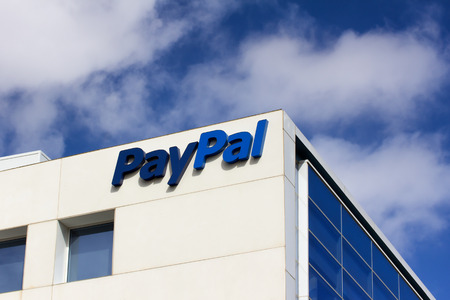 PayPal Working Capital, a division of PayPal Holdings based in San Jose, and Square Inc. of San Francisco, are two Big Fintechs that branched into commercial lending from the payments side of fintech. PayPal began making small business loans in 2013 while Square got into the game in 2014. In just the last half-decade, both companies have leveraged their technological expertise, massive data collections, data-mining skills, and catbird-seat positions in the marketplace to burst on the scene as powerhouse small business lenders.
PayPal Working Capital, a division of PayPal Holdings based in San Jose, and Square Inc. of San Francisco, are two Big Fintechs that branched into commercial lending from the payments side of fintech. PayPal began making small business loans in 2013 while Square got into the game in 2014. In just the last half-decade, both companies have leveraged their technological expertise, massive data collections, data-mining skills, and catbird-seat positions in the marketplace to burst on the scene as powerhouse small business lenders.
With somewhat similar business models, the pair have also surfaced as head-to-head competitors, their stock prices and rivalry drawing regular commentary from investors, analysts and journalists. Both have direct access to millions of potential customers. Both have the ability to use “machine learning” to reckon the creditworthiness of business borrowers. Both use algorithms to decide the size and terms of a loan.
Loan approval — or denials — are largely based on a customer’s sales and payments history. Money can appear, sometimes almost magically in minutes, in a borrower’s bank account, debit card or e-wallet. PayPal and Square Capital also deduct repayments directly from a borrower’s credit or debit card sales in “financing structures similar to merchant cash advances,” notes S&P.
At its website, here is how PayPal explains its loan-making process. “The lender reviews your PayPal account history to determine your loan amount. If approved, your maximum loan amount can be up to 35% of the sales your business processed through PayPal in the past 12 months, and no more than $125,000 for your first two loans. After you’ve completed your first two loans, the maximum loan amount increases to $200,000.”
PayPal, which reports having 267 million global accounts, was adroitly positioned when it commenced making small business loans in 2013. But what has really given the Big Fintech a boost, notes Levi King, chief executive and co-founder at Utah-based Nav — an online, credit-data aggregator and financial matchmaker for small businesses – was PayPal’s 2017 acquisition of Swift Financial. The deal not only added 20,000 new business borrowers to its 120,000, reported TechCrunch, but provided PayPal with more sophisticated tools to evaluate borrowers and refine the size and terms of its loans.
“PayPal had already been incredibly successful using transactional data obtained through PayPal accounts,” King told deBanked, “but they were limited by not having a broad view of risk.” It was upon the acquisition of Swift, however, that PayPal gained access to a “bigger financial envelope including personal credit, business credit, and checking account information,” King says, adding: “The additional data makes it way easier for PayPal to assess risk and offer not just bigger loans, but multiple types of loans with various payback terms.”
While PayPal used the Swift acquisition to spur growth and build market share, its rival Square — which is best known for its point-of-sale terminals, its smartphone “Cash App,” and its Square Card — has employed a different strategy.
OF A FREIGHT TRAIN
By selling off loans to third-party institutional investors, who snap them up on what Square calls a “forward-flow basis,” the Big Fintech barged into small business lending with the subtlety of a freight train. In just four years, Square originated 650,000 loans worth $4.0 billion, a stunning rise from the modest base of $13.6 million in 2014.
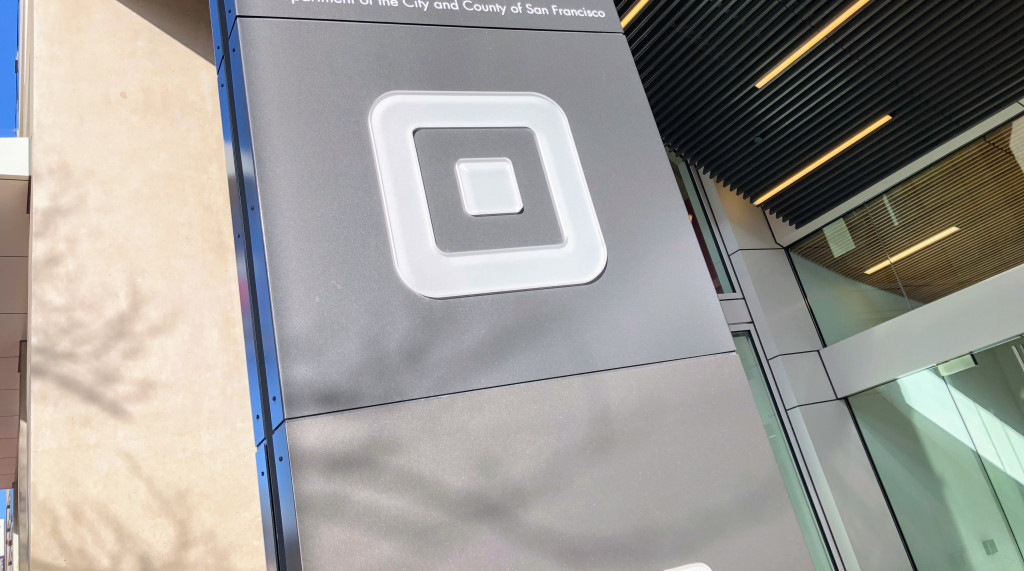 Square’s third-party funding model, moreover, demonstrates the benefits afforded from being deeply immersed in the financial ecosystem. Off-loading the loans “significantly increases the speed with which we can scale services and allows us to mitigate our balance sheet and liquidity risk,” the company reported in its most recent 10K filing.
Square’s third-party funding model, moreover, demonstrates the benefits afforded from being deeply immersed in the financial ecosystem. Off-loading the loans “significantly increases the speed with which we can scale services and allows us to mitigate our balance sheet and liquidity risk,” the company reported in its most recent 10K filing.
Square does not publicly disclose the entire roster of its third-party investors. But Kim Sampson, a media relations manager at Square, told deBanked that the Canada Pension Plan Investment Board — “a global investment manager with more than CA$300 billion in assets under management and a focus on sustained, long term returns” – is one important loan-purchaser.
Square also offers loans on its “partnership platform” to businesses for whom it does not process payments. And late last year the company introduced an updated version of an old-fashioned department store loan. Known as “Square Installments,” the program allows a merchant to offer customers a monthly payment plan for big-ticket purchases costing between $250 and $10,000.
Which model is superior? PayPal’s — which retains small business loans on its balance sheet — or Square’s third-party investor program? “The short answer,” says UBS analyst Wasserstrom, “is that PayPal retains small business loans on its balance sheet, and therefore benefits from the interest income, but takes the associated credit and funding risk.”
Meanwhile, as PayPal and Square stake out territory in the marketplace, their rivalry poses a formidable challenge to other competitors.
Both are well capitalized and risk-averse. PayPal, which reported $4.23 billion in revenues in 2018, a 13% increase over the previous year, reports sitting on $3.8 billion in retained earnings. Square, whose 2018 revenues were up 51 percent to $3.3 billion, reported that — despite losses — it held cash and liquid investments of $1.638 billion at the end of December.
King, the Nav executive, observes that Able, Dealstruck, and Bond Street – three once-promising and innovative fintechs that focused on small business lending – were derailed when they could not overcome the double-whammy of high acquisition costs and pricey capital.
“None of them were able to scale up fast enough in the marketplace,” notes King. “The process of institutionalization is pushing out smaller players.”
Learn From Josh Feinberg and Will Murphy in Person at Broker Fair
April 16, 2019You’ve seen them on social media. Now you can see them in person. Josh Feinberg and Will Murphy of Everlasting Capital will be doing a joint presentation on how to scale your broker shop at Broker Fair on May 6th at The Roosevelt Hotel in New York City.
Limited tickets are still available. Register now at Brokerfair.org
The Everlasting Capital co-founders will be presenting at 3:15pm on May 6th in the Promenade Suite. To view the full agenda, CLICK HERE.
-
Brokers
Access to the conference as a broker - Full access to the May 6th conference
- Complimentary access to the post-event cocktails on the rooftop of The Roosevelt Hotel
- Your conference badge will identify you as a broker
-
Funders/Lenders
Access to the conference as a capital provider - Full access to the May 6th conference
- Complimentary access to the post-event cocktails on the rooftop of The Roosevelt
- Your conference badge will identify you as a direct capital provider
-
General Admission
Access to the conference as a third party - Full access to the May 6th conference
- Complimentary access to the post-event cocktails on the rooftop at The Roosevelt
What Am I?
Broker
- You are employed by a non-bank business financing Broker/ISO — OR — You are an independent sales agent
- You are NOT employed by a direct lender or direct funder
- Broker Fair reserves the right to verify your selection.
- Your conference badge will identify you as a broker
Funder/Lender
- You are employed by a direct capital provider whether it’s loans, merchant cash advances, factoring, or other products
- Your conference badge will identify you as a direct capital provider
General Admission
- You are not employed by a broker/ISO or direct capital provider
- Your conference badge will not display a specific business model designation
- You will have the same conference access as a funder/lender does
Lots of Tech Buzzwords, Scary Problems
April 16, 2019 A federal regulator cut through the shield of fintech buzzwords on Monday when it announced that a darling of online lending valued at $2 billion, failed to properly handle rudimentary loan practices. The lender is Chicago-based Avant, who reportedly settled with the FTC for $3.85 million.
A federal regulator cut through the shield of fintech buzzwords on Monday when it announced that a darling of online lending valued at $2 billion, failed to properly handle rudimentary loan practices. The lender is Chicago-based Avant, who reportedly settled with the FTC for $3.85 million.
According to the FTC, Avant struggled to accurately determine borrower loan balances and repeatedly mismanaged payments. FTC Bureau of Consumer Protection Director Andrew Smith said that Avant’s issues were systemic. “Online lenders need to understand that loan servicing is just as important to consumers as loan marketing and origination, and we will not hesitate to hold lenders liable for unfair or deceptive servicing practices,” he said in a press release.
The FTC alleged:
“When consumers got an email or verbal confirmation from Avant that their loan was paid off, the company came back for more – sometimes months later – claiming the payoff quote was erroneous. The FTC says Avant dinged consumers for extra fees and interest and even reported to credit bureaus that loans were delinquent after consumers paid the quoted payoff amount.”
The FTC further stated:
“The lawsuit also alleges that Avant charged consumers’ credit cards or took payments from their bank accounts without permission or in amounts larger than authorized. Sometimes Avant charged duplicate payments. One unfortunate consumer’s monthly payment was debited from his account eleven times in a single day. Another person called Avant’s customer service number trying to reduce his monthly payment only to be charged his entire balance. In other instances, Avant took consumers’ payoff balance twice. One consumer was stuck with overdraft fees and angry creditors when Avant withdrew his monthly payment three times in one day.”
In a subtle dig, the FTC said that online lending could be beneficial “if 21st century financial platforms abandon misleading 20th century practices.”
Under the settlement order, Avant, LLC will be prohibited from taking unauthorized payments and from collecting payment by means of remotely created check (RCC). The company also is prohibited from misrepresenting: the methods of payment accepted for monthly payments, partial payments, payoffs, or any other purpose; the amount of payment that will be sufficient to pay off in its entirety the balance of an account; when payments will be applied or credited; or any material fact regarding payments, fees, or charges.
OnDeck Takes Advantage of New Same-Day ACH Technology
April 12, 2019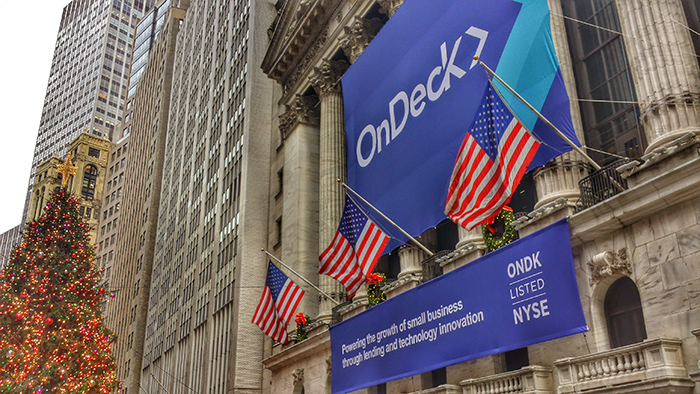 Same-day ACH is here, thanks to NACHA’s planned upgrade, and OnDeck, a small business lender, has already incorporated it into its platform.
Same-day ACH is here, thanks to NACHA’s planned upgrade, and OnDeck, a small business lender, has already incorporated it into its platform.
Shaleen Prakash, OnDeck’s Vice-President of Product Management, told deBanked:
“We are hyper-focused to get customers faster access to funding that’s already been
approved for them.”
Small business owners can now access up to $25,000 in funding on the same day they book a loan or make a withdrawal.
“As long as the request is made before the cutoff, funds reach the account by 5 p.m. It doesn’t matter if you are in New York or California,” Prakash said. The same-day cuttoff time and the $25,000 limit are also set by NACHA. OnDeck can lend larger amounts, obviously, up to $500,000, but not through same-day ACH.
OnDeck has already processed “millions of dollars over the new rails,” said Prakash. “Anybody who cares about when they get money and when it gets debited back from their account will benefit from this service. If there’s a cash crunch, the predictability and certainty from same day funding are fundamental to managing a business,” he added.
OnDeck’s same-day funding model is two-pronged, working both for accessing capital or processing payments to the online lender. On the cash management side, entrepreneurs gain access to the funds when they need it, even if they forget about a payment due on a Friday morning.
“A small business owner has to pay suppliers on time or meet payroll. Now they can be certain that the funds will reach the account and they will be able to manage cash flow better,” said Prakash.
OnDeck’s same-day transfers are equally important for making payments back to the lender.
“Think about the small business owner dealing with the challenges of managing cash already and how some have cash sitting in their account for three days,” he said.
Meanwhile, if OnDeck says an account is debited on a Wednesday, they really mean the funds are debited from the account on Wednesday.
NACHA, the National Automated Clearing House Association, created same-day ACH transfers in three phases. Phase one and two were limited to credit and debit transactions, which left out some of the small business population. It didn’t make sense for OnDeck to integrate the technology until now.
“Through the process of providing a loan to customers, we collect their account information, so we already have it. Now we can meet their needs of getting funding faster without introducing any new friction to the customers,” he added.
OnDeck, which boasted origination volume of $658 million in Q4 2018, is scheduled to report Q1 2019 financial results on May 2.


